Stomach
The stomach is a muscular organ located on the left side of the upper abdomen. It plays a key role in the digestion of food and is an important part of the digestive system.
Anatomy of the Stomach
The stomach is divided into four main parts: the cardia, fundus, body, and pylorus. The inner lining of the stomach contains millions of small gastric glands that secrete gastric juices, including hydrochloric acid and enzymes, which help break down food.
Functions of the Stomach
The stomach performs the following functions:
- Storage: The stomach stores food and liquid that have been swallowed until they are mixed with gastric juices and released into the small intestine.
- Breakdown of food: The stomach uses its muscular walls and acidic gastric juices to break down food into a semi-liquid form called chyme.
- Killing bacteria: The high acidity of the stomach's gastric juices helps to kill harmful bacteria that may be present in the food we eat.
- Secretion of hormones: The stomach secretes hormones that help regulate digestion and appetite, such as gastrin, ghrelin, and leptin.
Common Stomach Disorders
Some common disorders of the stomach include:
- Gastritis: Inflammation of the stomach lining, often caused by factors such as excessive alcohol consumption, stress, or bacterial infection.
- Peptic ulcers: Open sores that develop on the lining of the stomach, esophagus, or small intestine, often due to infection with Helicobacter pylori bacteria or long-term use of nonsteroidal anti-inflammatory drugs (NSAIDs).
- Gastroesophageal reflux disease (GERD): A chronic condition in which stomach acid flows back into the esophagus, causing symptoms such as heartburn and acid regurgitation.
- Gastric cancer: Cancer that develops in the lining of the stomach, often associated with factors such as chronic gastritis, smoking, and a diet high in smoked, pickled, or salted foods.
Study Guide
When studying the stomach, it is important to focus on the following key points:
- Understand the anatomy of the stomach, including its structural parts and the functions of the gastric glands.
- Learn about the digestive functions of the stomach, including the breakdown of food and the secretion of gastric juices.
- Be familiar with common stomach disorders, their causes, symptoms, and potential treatments.
- Explore the role of the stomach in overall digestive health and its connection to other organs in the digestive system.
By mastering these concepts, you will have a comprehensive understanding of the stomach and its importance in the process of digestion.
[Stomach] Related Worksheets and Study Guides:
.◂Science Worksheets and Study Guides Kindergarten. Our Earth
Coloring Worksheet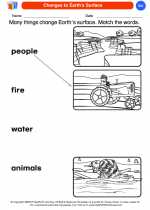 Changes to Earth's Surface
Changes to Earth's Surface  Coloring Worksheet
Coloring Worksheet Changes to Earth's Surface
Changes to Earth's Surface  Coloring Worksheet
Coloring Worksheet Earth's Resources
Earth's Resources  Coloring Worksheet
Coloring Worksheet Earth's Resources
Earth's Resources  Coloring Worksheet
Coloring Worksheet Landforms
Landforms  Coloring Worksheet
Coloring Worksheet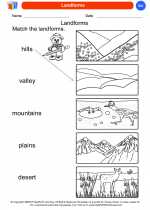 Landforms
Landforms  Coloring Worksheet
Coloring Worksheet Our Earth
Our Earth  Coloring Worksheet
Coloring Worksheet Our Earth
Our Earth  Coloring Worksheet
Coloring Worksheet Reduce-Reuse-Recycle
Reduce-Reuse-Recycle  Coloring Worksheet
Coloring Worksheet Reduce-Reuse-Recycle
Reduce-Reuse-Recycle  Coloring Worksheet
Coloring Worksheet Rocks
Rocks  Coloring Worksheet
Coloring Worksheet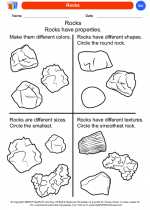 Rocks
Rocks  Coloring Worksheet
Coloring Worksheet Soil Beneath Our Feet
Soil Beneath Our Feet  Coloring Worksheet
Coloring Worksheet Soil Beneath Our Feet
Soil Beneath Our Feet  Coloring Worksheet
Coloring Worksheet Types of Fossils
Types of Fossils  Coloring Worksheet
Coloring Worksheet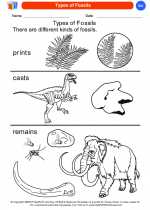 Types of Fossils
Types of Fossils  Coloring Worksheet
Coloring Worksheet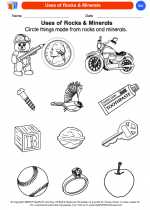 Uses of Rocks & Minerals
Uses of Rocks & Minerals  Coloring Worksheet
Coloring Worksheet Uses of Rocks & Minerals
Uses of Rocks & Minerals  Coloring Worksheet
Coloring Worksheet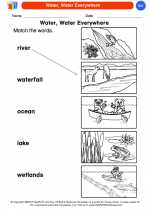 Water, Water Everywhere
Water, Water Everywhere  Coloring Worksheet
Coloring Worksheet Water, Water Everywhere
Water, Water Everywhere 

 Coloring Worksheet
Coloring Worksheet
 Coloring Worksheet
Coloring Worksheet
 Coloring Worksheet
Coloring Worksheet
 Coloring Worksheet
Coloring Worksheet
 Coloring Worksheet
Coloring Worksheet
 Coloring Worksheet
Coloring Worksheet
 Coloring Worksheet
Coloring Worksheet
 Coloring Worksheet
Coloring Worksheet
 Coloring Worksheet
Coloring Worksheet
 Coloring Worksheet
Coloring Worksheet
 Coloring Worksheet
Coloring Worksheet
 Coloring Worksheet
Coloring Worksheet
 Coloring Worksheet
Coloring Worksheet
 Coloring Worksheet
Coloring Worksheet
 Coloring Worksheet
Coloring Worksheet
 Coloring Worksheet
Coloring Worksheet
 Coloring Worksheet
Coloring Worksheet
 Coloring Worksheet
Coloring Worksheet
 Coloring Worksheet
Coloring Worksheet

The resources above cover the following skills:
EARTH AND SPACE SCIENCE (NGSS)
Earth and Human Activity
Students who demonstrate understanding can:
Communicate solutions that will reduce the impact of humans on the land, water, air, and/or other living things in the local environment.